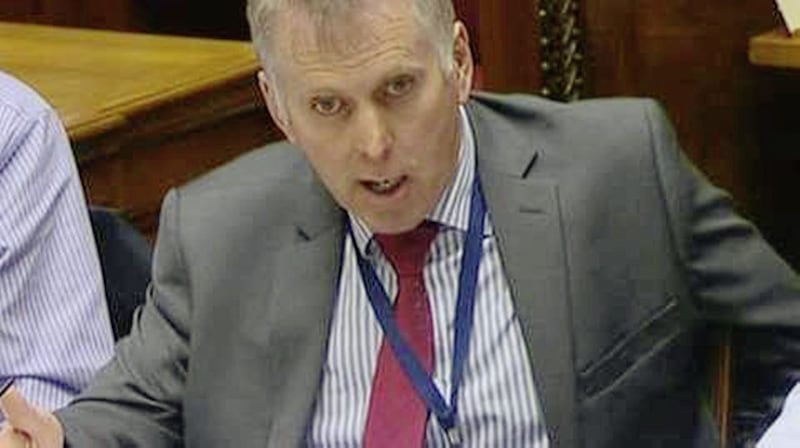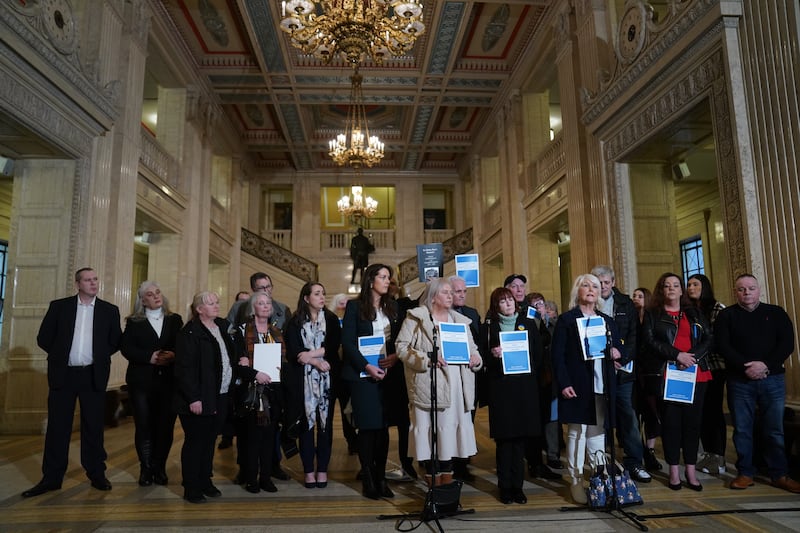Stormont’s powersharing arrangements collapsed on Monday after the DUP and Sinn Féin failed to reach agreement.
Any budget cuts due to the instability could threaten scores of jobs.
Here’s everything you need to know:
Who is the man who will have his hands on the purse strings?
David Sterling, a senior civil servant, will tomorrow take control of the north's public finances following the failure to establish a Stormont executive.
Department of Finance (DoF) permanent secretary Mr Sterling will be required to immediately put in place a budget for the forthcoming financial year, which begins next week.
He will initially have control of a sum that is the equivalent of three-quarters of last year's total spend.
Stormont's main budget for day-to-day spending in 2016-17 was just under £10 billion, most of which came from Westminster in the block grant.
While concerns have been raised about cuts to public services, there is no immediate need to reduce spending.
If there is no a budget bill in place at Stormont by the end of July, Mr Sterling gets the power to allocate 95 per cent of last year's total.
In that scenario, however, the likelihood of cuts and job losses increases.
The married father-of-two, 59, has been responsible for co-ordinating public expenditure planning across the Northern Ireland departments.

He has had oversight of a range of prestige projects including the development of the Titanic Belfast visitor centre, the hosting of the 2012 Irish Open Golf Championship and the 2014 Grande Partenza of the Giro d’Italia cycling race.
In 2013, he chaired the ministerial Executive’s G8 summit steering group for hosting the world’s most powerful leaders.
So, will he ensure everything will just go on as normal?
For groups delivering services on the ground it remains deeply uncertain.
Remember, inflation is eating away at the value of this year’s budget settlement and the total needed to increase just to stand still in real terms. The population is ageing and the health service coming under increasing pressure.
Here's how things are looking for Justice, Health, Education and Youth Workers in the North:
JUSTICE
Policing, prison and court service reforms are to be kicked down the road as Stormont's spending powers fall to a senior civil servant.
While David Sterling and other senior officials will ensure the lights are kept on, they will not implement policy changes.
None of the reforms proposed by the former justice minister Claire Sugden during her short term in office are likely to be brought forward during an extended talks period.

The PSNI has already said it is anticipating a near £20 million cut to its annual budget, taking effect immediately.
Prison reform is also a pressing issue, with understaffing and underinvestment having been factors in numerous critical inspection reports, most damningly of Maghaberry jail.
Modernisation of the prison estate will not take place in the absence of a justice minister.
Ms Sugden also proposed a review of the bail system, coming after several cases of prisoners on parole or defendants awaiting trial absconding.
The setting of tariffs for murder, arrangements for unduly lenient sentences and the effectiveness of current sentencing guidelines were also to be examined.
More cuts to the Public Prosecution Service seem inevitable, further slowing an already snail-paced judicial system.

But perhaps the cruellest aspect of the collapse of devolution will be a failure implement Sir Anthony Hart's recommendations in relation to victims of historical institutional abuse.
The retired judge recommended compensation be paid to victims, partially by the state and partially by the institutions responsible.
Those who have already been let down are now facing yet more disappointment with a seemingly unbearable wait ahead.
HEALTH
HOSPITAL waiting lists are likely to get worse if Stormont civil servants are left to operate with reduced funds.
With more than 240,000 patients already facing delays for their first consultant appointment, doctors are warning of the inevitable failure to maintain services if no budget is agreed.
In addition, plummeting NHS staff morale and increasing sickness absence will not be aided by the ongoing uncertainty.
The Department of Health receives the lion's share of the Executive's annual budget, with almost £5 billion awarded in 2016/17.
As of yesterday, the north has 2,000 unfilled nursing jobs.

A former head of the British Medical Association who has worked with 25 different health ministers since the 1980s believes a direct rule minister is unlikely to make the radical improvements required.
Dr Brian Patterson also expressed concern that senior civil servants and Stormont politicians are not willing to bring about necessary changes because they are 'unpalatable'.
"Unless our health service is reformed it is doomed," Dr Patterson told The Irish News last night.
"I’ve been around a lot of direct rule ministers and with the exception of Shaun Woodward, very few are willing to make changes."
EDUCATION
As understatements go, saying the cash crisis facing education is far from an ideal set of circumstances is a doozy.
Without an Executive, the permanent secretary of the Department of Finance can allocate up to 75 per cent of the 2016/17 budget to departments initially, rising to 95 per cent by the end of July.
Even before this potential cut in funding, debts were soaring with schools predicted to be £75 million in the red in the next three years.
This means principals are already planning to make cuts while remaining in the dark about how much money they actually have.
The situation is tough for schools, as the former minister Peter Weir admitted. For them to operate without making any changes "you would need £240m extra to stand still".
Many schools say they are stretched to the limit and any new cuts will have profound consequences, with teachers and support staff facing redundancy.

Less money also means larger class sizes and fewer books and basic resources. One union conference heard that teachers were even taking money from their own pockets to pay for paper, pencils and books.
YOUTH WORKERS
Hundreds of youth workers in the north have been given a "last-minute reprieve" until July after government funding was secured.
The Education Authority (EA) had previously advised that money for `extended provision' positions across the north would end on Friday due to the lack of an agreed budget, but a 'cash allocation' from the Department for Education has ensured operations will continue until July 31.
The development ensures the short-term future of youth workers and youth initiatives for which funding was due to end on March 31, 2017.
Projects under threat included outreach and street based work, weekend youth provision and work with young people in juvenile detention centres.
Although the Education Authority has been unable to estimate the total number of youth worker posts affected it is thought there are as many as 130 in west Belfast alone.








